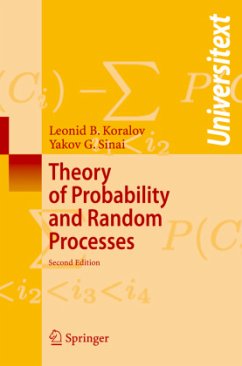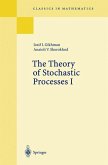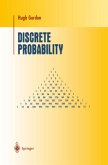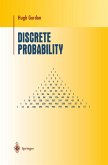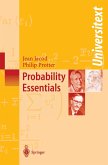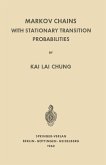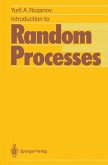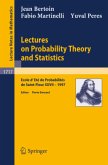The core of this book is a one-year course in probability theory and the theory of random processes, taught at Princeton University. The book provides a comprehensive exposition of classical probability theory and the theory of random processes.
A one-year course in probability theory and the theory of random processes, taught at Princeton University to undergraduate and graduate students, forms the core of the content of this book
It is structured in two parts: the first part providing a detailed discussion of Lebesgue integration, Markov chains, random walks, laws of large numbers, limit theorems, and their relation to Renormalization Group theory. The second part includes the theory of stationary random processes, martingales, generalized random processes, Brownian motion, stochastic integrals, and stochastic differential equations. One section is devoted to the theory of Gibbs random fields.
This material is essential to many undergraduate and graduate courses. The book can also serve as a reference for scientists using modern probability theory in their research.
A one-year course in probability theory and the theory of random processes, taught at Princeton University to undergraduate and graduate students, forms the core of the content of this book
It is structured in two parts: the first part providing a detailed discussion of Lebesgue integration, Markov chains, random walks, laws of large numbers, limit theorems, and their relation to Renormalization Group theory. The second part includes the theory of stationary random processes, martingales, generalized random processes, Brownian motion, stochastic integrals, and stochastic differential equations. One section is devoted to the theory of Gibbs random fields.
This material is essential to many undergraduate and graduate courses. The book can also serve as a reference for scientists using modern probability theory in their research.
"The book is based on a series of lectures taught by the authors at Princeton University and the University of Maryland. The material of the book can be used to support a two-semester course in probability and stochastic processes or, alternatively, two independent one-semester courses in probability and stochastic processes, respectively. ... will be found useful by advanced undergraduate and graduate students and by professionals who wish to learn the basic concepts of modern probability theory and stochastic processes." -- Vladimir P. Kurenok, Mathematical Reviews, Issue 2008 k
From the reviews of the second edition:
"The book is based on a series of lectures taught by the authors at Princeton University and the University of Maryland. The material of the book can be used to support a two-semester course in probability and stochastic processes or, alternatively, two independent one-semester courses in probability and stochastic processes, respectively. ... will be found useful by advanced undergraduate and graduate students and by professionals who wish to learn the basic concepts of modern probability theory and stochastic processes." (Vladimir P. Kurenok, Mathematical Reviews, Issue 2008 k)
"The text is well written and the concepts and results motivated and explained. Most of the chapters include a section with exercises of varying difficulty. The material of the book has been used by the authors to teach one-year lecture courses at Princeton University and the University of Maryland to advanced undergraduate and graduate students. Summarising, the book is enjoyable and provides a concise well-motivated presentation of the material covered, suitable for lecture courses at an advanced level." (Evelyn Buckwar, Zentralblatt MATH, Vol. 1181, 2010)
"The book is based on a series of lectures taught by the authors at Princeton University and the University of Maryland. The material of the book can be used to support a two-semester course in probability and stochastic processes or, alternatively, two independent one-semester courses in probability and stochastic processes, respectively. ... will be found useful by advanced undergraduate and graduate students and by professionals who wish to learn the basic concepts of modern probability theory and stochastic processes." (Vladimir P. Kurenok, Mathematical Reviews, Issue 2008 k)
"The text is well written and the concepts and results motivated and explained. Most of the chapters include a section with exercises of varying difficulty. The material of the book has been used by the authors to teach one-year lecture courses at Princeton University and the University of Maryland to advanced undergraduate and graduate students. Summarising, the book is enjoyable and provides a concise well-motivated presentation of the material covered, suitable for lecture courses at an advanced level." (Evelyn Buckwar, Zentralblatt MATH, Vol. 1181, 2010)

